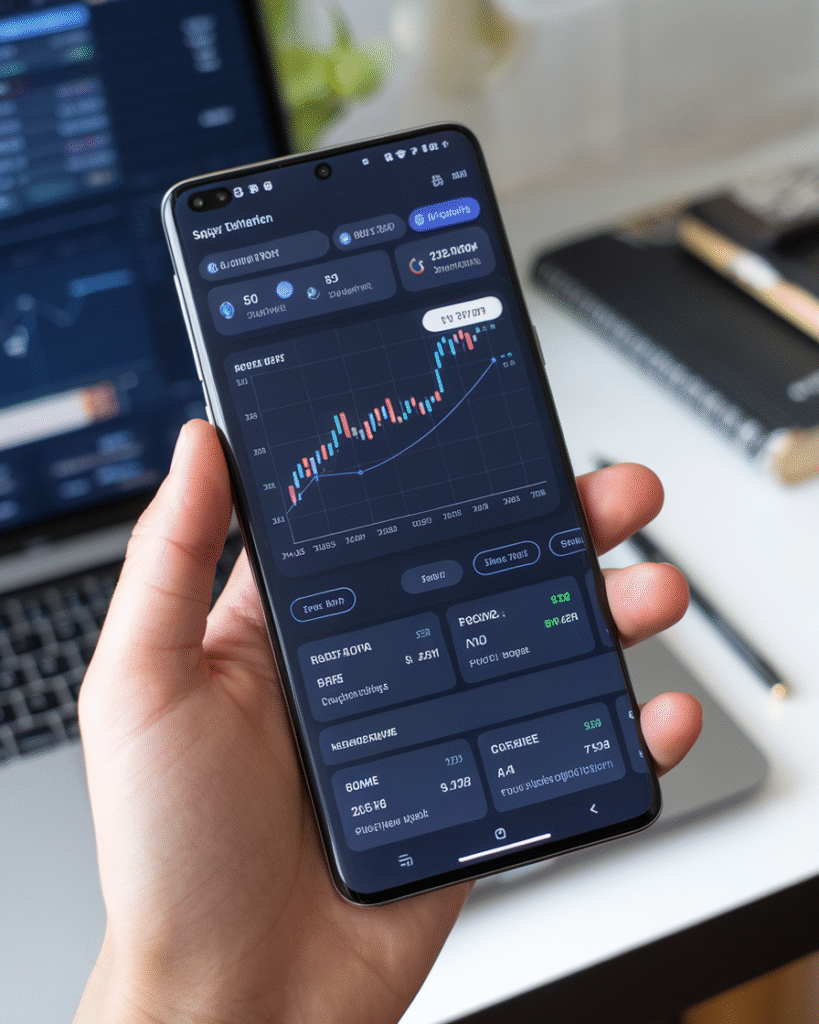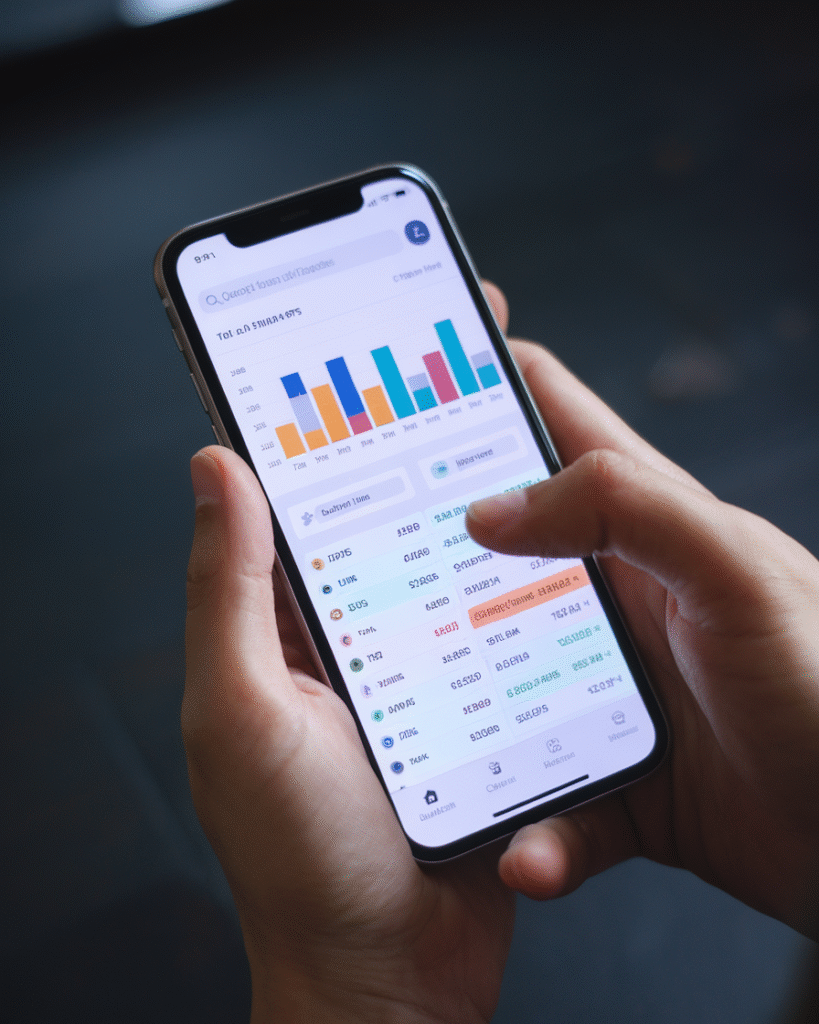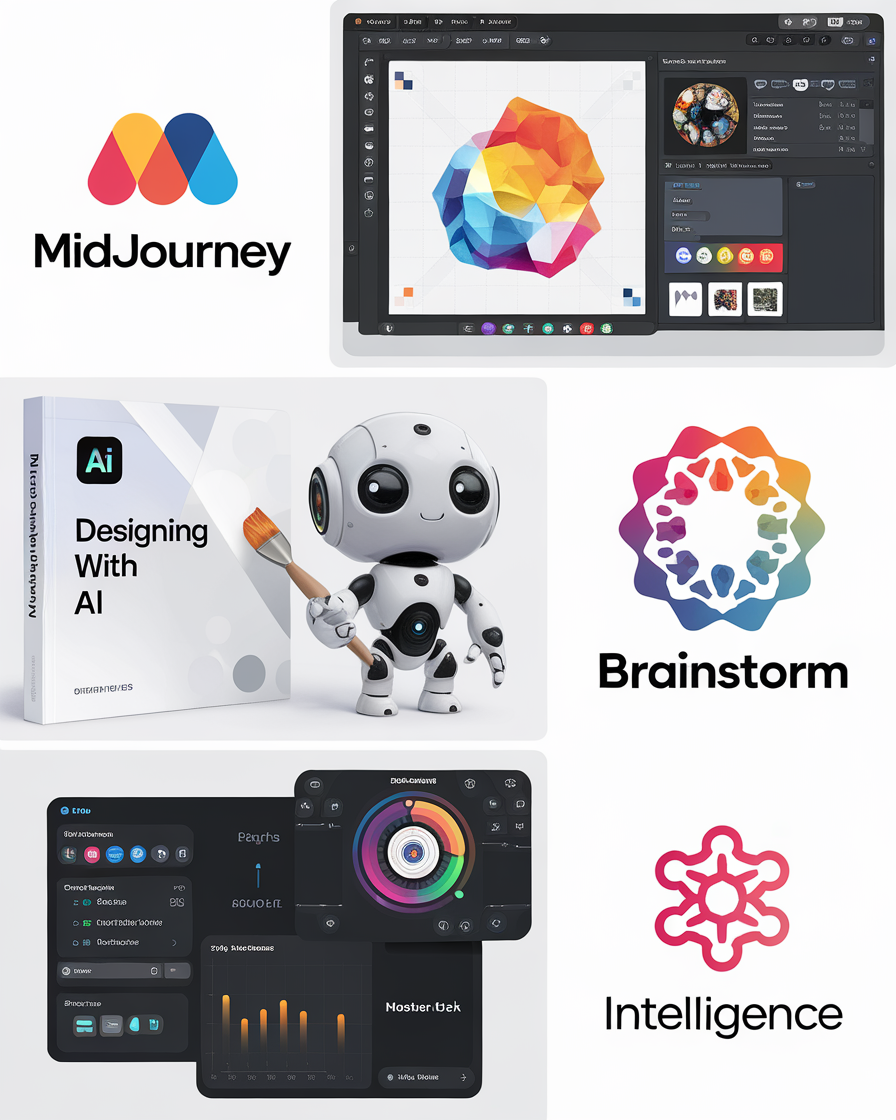Use AI to invest smarter isn’t just a catchy idea—it’s a revolution unfolding in real time. With artificial intelligence rapidly reshaping industries, financial investing is among the most exciting spaces being transformed. Investors today no longer need to rely solely on gut feelings, outdated spreadsheets, or the traditional “wait and watch” approach. Instead, cutting-edge AI investing apps, bots, and free AI stock analysis tools are giving everyone—yes, even beginners—a way to navigate markets like seasoned pros.
At RiseviaAI, our journey started with a vision to empower people with AI-enhanced insights for personal growth. But as our community grew, one thing became clear: people wanted more than self-development—they wanted actionable strategies to take control of their financial future. That’s how our story evolved from mental wellness coaching to exploring how AI investing bots and the best AI investing platforms can democratize wealth-building.
So, whether you’re curious about using a Use AI to Invest Smarter app, wondering if it’s legal to let a bot trade stocks for you, or simply trying to find the best AI for investing, this guide will give you everything you need. From understanding AI in finance to actionable steps for beginners, we’ve packed this article with insights to future-proof your wealth.
Table Of Contents
- Understanding AI in Investment
- Why You Should Consider AI Investing Apps
- Exploring Free AI Stock Analysis Tools
- Can Free AI Stock Analysis Tools Really Help You Use AI to Invest Smarter?
- Why Free Tools Are a Smart Start to Use AI to Invest Smarter
- Popular Free AI Tools to Help You Use AI to Invest Smarter
- Free Tools vs. Paid Platforms: Can You Really Use AI to Invest Smarter Without Paying?
- The Future of Investing: Why You’ll Want to Use AI to Invest Smarter
- Why Free AI Tools Are a Game Changer
- AI Investing Bots and Their Impact
- Legality and Ethical Considerations
- AI Stock Trading for Beginners
- Future Trends in AI Investing
- Conclusion: Why You Should Use AI to Invest Smarter
- FAQs – Answering Common Questions
Understanding AI in Investment
What Does It Mean to Use AI to Invest Smarter?
In simple terms, artificial intelligence in investing means leveraging machine learning algorithms and big data analytics to make informed financial decisions. Unlike humans, AI systems can analyze billions of data points in seconds, identify patterns invisible to the naked eye, and execute trades at lightning speed.
Think about how apps like Betterment or Wealthfront use AI. These platforms assess your risk tolerance, goals, and market data to create an optimal portfolio. Similarly, a Use AI to Invest Smarter app goes beyond standard automation by learning from historical trends, predicting stock performance, and offering proactive advice.
AI systems don’t experience fatigue, emotion, or bias. This makes them powerful allies in avoiding the common pitfalls of emotional trading—panic selling, FOMO buying, and holding onto bad investments too long.
How AI Has Changed the Investment Landscape
In the past, access to sophisticated trading algorithms was limited to hedge funds and Wall Street giants. Now, thanks to advancements in technology and a surge of AI investing apps, individual investors have these tools at their fingertips.
Here’s how AI is transforming the landscape:
- Algorithmic Trading: AI-powered trading algorithms execute trades based on real-time data, minimizing human error.
- Sentiment Analysis: Advanced systems analyze news, social media, and market sentiment to predict potential market movements.
- Robo-Advisors: Platforms like Betterment and SoFi automate portfolio management for beginners and seasoned investors alike.
Want to explore how AI fits into personal development and smart decision-making? Check out RiseviaAI’s practical AI workshops for real-world applications beyond finance.
These innovations aren’t just helping Wall Street—they’re making it possible for anyone with a smartphone to engage in intelligent investing strategies.
Why You Should Consider AI Investing Apps

Features of the Best AI Investing Platforms
When it comes to choosing an AI platform, not all are created equal. The best AI investing platforms offer features that cater to both seasoned traders and beginners dipping their toes into the stock market.
Here’s what sets them apart:
- Predictive Analytics: Using machine learning models, these platforms can forecast potential market movements with surprising accuracy.
- Portfolio Optimization: They suggest asset allocations tailored to your risk appetite and financial goals.
- Real-Time Insights: From analyzing market sentiment to monitoring global events, AI provides up-to-the-minute data to keep your portfolio aligned with trends.
- User-Friendly Interfaces: Many apps simplify complex data, allowing even beginners to understand their investments.
Platforms like eToro and Robinhood have pioneered this space, but there’s an emerging generation of apps specifically designed for AI-based trading. The rise of AI investing bots means users can automate their strategies, reducing the stress of constant monitoring.
For a deeper dive into how AI is transforming investment strategies and why it’s considered revolutionary, Investopedia explains this shift in detail.
Advantages Over Traditional Investment Strategies
Traditional investing relies heavily on human judgment, which comes with inherent limitations—bias, fatigue, and emotions. In contrast, AI brings:
- Speed: Analyze millions of data points in seconds.
- Objectivity: Free from human emotion, AI systems stick to data-driven insights.
- Cost Efficiency: Many AI apps have lower fees than human advisors.
- Accessibility: AI investing tools open doors for individuals with minimal capital or knowledge.
Moreover, AI’s ability to adapt to dynamic market conditions allows investors to stay ahead of the curve. According to Saxo Bank’s analysis, AI in finance is poised to become a powerful force but comes with its own set of challenges like ethical concerns and algorithmic biases. Saxo’s guide on AI as a smart investment explores these nuances thoroughly.
This makes it crucial for investors to understand the capabilities and limitations of these systems before fully trusting them.
Looking for inspiration? Try RiseviaAI’s AI-driven insights for real-world applications beyond finance.
Why Beginners Should Start With AI Investing Apps
For those starting their investment journey, AI platforms can act as a teacher and guide rolled into one. They provide step-by-step assistance, helping users avoid common beginner pitfalls while making them feel empowered to take charge of their finances.
Some platforms even offer demo accounts, so users can practice trading without risking real money. This makes them ideal for exploring AI stock trading for beginners.
Exploring Free AI Stock Analysis Tools

Can Free AI Stock Analysis Tools Really Help You Use AI to Invest Smarter?
The promise to use AI to invest smarter without spending a dime sounds almost too good to believe. But the reality is, free AI stock analysis tools have evolved massively in recent years. Built with accessibility in mind, these tools are opening doors for beginner and seasoned investors alike who want to use AI to invest smarter without the commitment of premium subscriptions.
While paid platforms certainly have an edge with advanced algorithm customization, high-frequency trading capabilities, and extensive data libraries, free tools still offer incredible opportunities. Many of these free resources empower users to use AI to invest smarter by providing historical data analysis, predictive modeling, and even real-time sentiment scanning. This makes them ideal for those testing the waters before committing to a paid platform or for anyone eager to learn how to use AI to invest smarter step by step.
Why Free Tools Are a Smart Start to Use AI to Invest Smarter
Think of free AI tools as a training ground where you can safely experiment. When you use AI to invest smarter through these platforms, you get access to simplified but effective features. For example, a free AI stock analysis app may scan years of stock performance, spot patterns, and send push notifications when market conditions signal a potential surge or dip.
By starting here, you’re not just saving money—you’re learning how to use AI to invest smarter by testing strategies, refining your approach, and building confidence without financial risk. For many investors, these free tools are the first step in a journey to mastering how to use AI to invest smarter on more advanced systems later.
Popular Free AI Tools to Help You Use AI to Invest Smarter
Several platforms are helping users at all levels discover how to use AI to invest smarter effectively:
✅ AI Portfolio Trackers – These apps are a fantastic way to use AI to invest smarter by monitoring your portfolio and offering insights based on AI’s evaluation of risk and market trends.
✅ Sentiment Analysis Tools – Using natural language processing (NLP), these tools scan news outlets, forums, and social media to detect investor sentiment. This can help you use AI to invest smarter by anticipating market mood swings.
✅ Pattern Recognition Software – These beginner-friendly tools make it possible to use AI to invest smarter by flagging potential breakout stocks through historical pattern identification.
Each of these tools enables you to use AI to invest smarter in a way that fits your style and level of expertise.
Free Tools vs. Paid Platforms: Can You Really Use AI to Invest Smarter Without Paying?
While premium platforms undoubtedly provide a broader suite of features, free tools still allow you to use AI to invest smarter effectively—especially if your focus is on learning and testing. Paid services often include algorithm fine-tuning, backtesting on vast data sets, and integration with high-frequency trading systems. But if your goal is to build confidence, experiment with strategies, or get a feel for how to use AI to invest smarter, free options are surprisingly robust.
Remember, the key to success is understanding how these tools work so you can maximize their potential to use AI to invest smarter. Combining free tools with your own market research can give you an edge, even without the bells and whistles of paid platforms.
The Future of Investing: Why You’ll Want to Use AI to Invest Smarter
The trend is clear: as artificial intelligence grows more sophisticated, the ability to use AI to invest smarter will become essential for anyone serious about financial growth. Even today, free tools harness machine learning and predictive analytics to provide insights that once required entire teams of analysts.
By learning to use AI to invest smarter now—starting with free platforms—you’re positioning yourself for a future where AI isn’t just a tool but a core strategy. Whether you’re tracking sentiment shifts or identifying hidden patterns in stock charts, your ability to use AI to invest smarter could be the competitive advantage that sets you apart. confidence and understanding how AI works in financial markets. For newcomers, this lowers the barrier to entry, making AI stock trading for beginners both accessible and educational.
Why Free AI Tools Are a Game Changer
Historically, advanced market analytics were reserved for institutional investors with deep pockets. Today, free tools have leveled the playing field by bringing similar technologies to individual traders.
This democratization means even someone with limited funds can harness AI’s power to:
- Assess portfolio performance with minimal effort
- Spot emerging trends earlier than traditional research methods
- Avoid emotional decision-making thanks to unbiased data analysis
The best part? Free tools allow users to experiment without fear. Beginners can test out features, strategies, and even AI investing bots without risking real money, creating a perfect sandbox for learning.
AI Investing Bots and Their Impact

What Is an AI Investing Bot and How Does It Work?
An AI investing bot is an automated system designed to execute trades based on predefined algorithms and real-time market analysis. These bots operate around the clock, scanning market movements, detecting patterns, and making decisions faster than any human ever could.
At their core, these bots use machine learning models to adapt and improve over time. By analyzing massive volumes of financial data, they identify subtle trends and execute trades in milliseconds. This capability allows them to respond to market volatility with precision and consistency.
Imagine a bot programmed to buy when a stock dips by 3% and sell after a 5% gain. While this is a simplistic example, today’s bots are far more sophisticated, accounting for multiple variables, including global news sentiment, technical indicators, and economic signals.
Are AI Bots the Future of Stock Trading?
The rise of AI investing bots signals a major shift in how stock trading is approached. These bots appeal to both novice and experienced investors because of their ability to:
- Eliminate Emotional Trading: Bots stick to data-driven strategies, avoiding panic buys or impulsive sells.
- Execute High-Frequency Trades: Human traders simply can’t match the speed at which bots analyze data and execute transactions.
- Ensure Consistency: Once programmed, bots follow their strategy without deviation, reducing the risk of human error.
For beginners exploring AI stock trading for beginners, bots offer a user-friendly introduction to automated investing. They require minimal intervention and help users understand the principles of algorithmic trading without needing in-depth technical knowledge.
That said, it’s important to approach AI bots with realistic expectations. While they excel at executing pre-set strategies, they are not immune to market crashes or sudden geopolitical events that disrupt even the most robust algorithms.
Challenges and Limitations of AI Investing Bots
While AI bots can revolutionize trading, they come with challenges:
- Algorithm Bias: Since bots learn from historical data, any inherent biases in that data can influence their decision-making.
- Overfitting Risks: Some bots may perform exceptionally in backtests but struggle in real-time markets due to over-optimization.
- Dependence on Internet and APIs: System failures or connectivity issues can disrupt their operation, leading to missed opportunities or unintended trades.
Investors should also be cautious of over-reliance. AI bots are tools, not guarantees of success. Combining their insights with human judgment often yields the best results.
Legality and Ethical Considerations
Is It Legal to Use AI to Invest in Stocks?
One of the most frequent concerns for new investors exploring how to use AI to invest smarter is whether AI-driven platforms or bots are even legal. The good news? The answer is yes. In most countries, individuals and institutions can use AI to invest smarter without breaking any laws.
Financial regulators like the SEC in the United States recognize that artificial intelligence is simply a technology—how you use AI to invest smarter determines whether you’re within legal boundaries. There are no restrictions against using AI tools to analyze stock trends, predict market shifts, or automate trading, as long as the trades themselves follow established rules.
When you use AI to invest smarter, you’re applying innovative tools to make informed decisions. But it’s crucial to remember that even AI-powered decisions must adhere to market regulations. For instance, using an AI investing app to execute trades is entirely legal. However, engaging in illegal activities such as insider trading or market manipulation—intentionally or not—can lead to severe consequences.
This is why it’s essential to choose reputable platforms when you use AI to invest smarter. Top-tier services build compliance into their algorithms and continually update their systems to align with changing regulations. This not only protects your investments but also ensures you’re legally sound every time you use AI to invest smarter.
How to Stay Compliant While You Use AI to Invest Smarter
When you use AI to invest smarter, it’s vital to understand the limits of what AI can and cannot do legally. Here are some tips to ensure you stay on the right side of the law:
✅ Choose Regulated Platforms – Make sure the AI tools you use are backed by companies that comply with financial regulations. This is one of the safest ways to use AI to invest smarter without legal risk.
✅ Understand Your Algorithms – If you’re creating or customizing trading bots, ensure their behavior aligns with market rules. Blindly trusting unverified algorithms can backfire when you use AI to invest smarter.
✅ Monitor Trades Regularly – Even though automation is a key benefit when you use AI to invest smarter, regular monitoring ensures your strategies don’t drift into grey areas due to changing market dynamics.
By following these practices, you can confidently use AI to invest smarter and avoid regulatory pitfalls.
Ethical Concerns in AI-Driven Investing
While legality is clear-cut in most cases, ethics present a more nuanced challenge. As AI takes a larger role in financial markets, several ethical issues arise:
- Algorithmic Bias: AI systems trained on biased datasets may reinforce existing market inequalities or favor certain types of investments.
- Market Manipulation Risks: Sophisticated AI systems, especially when used by powerful institutions, could unintentionally lead to unfair advantages, creating market distortions.
- Transparency: Many AI systems operate as “black boxes,” making it difficult for users to understand how decisions are made.
These concerns highlight the importance of investor responsibility. Users should actively seek AI platforms that prioritize ethical practices, explain their algorithms clearly, and allow some level of human oversight.
Why Investors Should Stay Vigilant
AI-driven tools are transformative, but investors cannot afford to become passive participants. Monitoring your AI bot’s performance, understanding its decision-making parameters, and staying updated on regulatory shifts are crucial.
For beginners stepping into AI stock trading for beginners, this vigilance ensures they gain the benefits of automation without falling into the trap of blind trust. Even the most advanced technology needs human judgment as its final layer of protection.
AI Stock Trading for Beginners
How Beginners Can Start With AI Stock Trading
For beginners stepping into the world of investing, the idea of using artificial intelligence might feel intimidating at first. But in reality, AI has made stock trading more accessible than ever. With intuitive apps and platforms, even those with no prior experience can begin to use AI to invest smarter.
The first step is choosing a beginner-friendly AI platform. Look for apps that offer guided account setup, simplified dashboards, and educational resources. Many of these tools also provide demo accounts where users can practice trading without risking real money. This allows beginners to learn the ropes while observing how AI systems make decisions.
Once comfortable, users can move into real-time trading with confidence. Setting clear investment goals and understanding risk tolerance are crucial. Beginners should start small, focusing on learning how their chosen AI system analyzes markets and makes recommendations.
Common Mistakes to Avoid
As empowering as AI can be, new investors often make a few mistakes when starting out:
- Over-Reliance on Automation: While AI bots and apps are powerful, they are not infallible. Monitoring their activity is essential.
- Ignoring Market Fundamentals: AI may do the heavy lifting, but a basic understanding of how stock markets operate remains invaluable.
- Lack of Diversification: Relying too heavily on a single AI strategy or asset class increases risk exposure.
Avoiding these pitfalls can help beginners build confidence and develop a balanced approach to AI stock trading.
The Role of AI in Shaping New Investors
Artificial intelligence acts as both a guide and a safety net for those new to investing. By analyzing data, predicting trends, and automating trades, AI reduces the learning curve dramatically. It allows beginners to focus on strategic planning rather than getting overwhelmed by complex market dynamics.
This democratization of technology means that anyone—regardless of their financial background—can access tools that were once reserved for institutional traders. The key is to start with a mindset of learning and growth, treating AI not as a magic solution but as a partner in building long-term wealth.
Future Trends in AI Investing
What’s Next for AI in Finance?
As artificial intelligence continues to evolve, its role in the financial sector is only expected to grow. Investors who want to use AI to invest smarter must stay ahead of these trends to fully harness the technology’s potential.
One major development on the horizon is the integration of AI with blockchain technology. This combination could make transactions more transparent and secure while enabling faster settlement times. AI systems could analyze blockchain data to detect market anomalies or emerging trends in decentralized finance.
Another trend is the rise of hyper-personalized investing. AI will increasingly tailor portfolios to individual investor behaviors, goals, and ethical preferences, even adjusting automatically as financial conditions change. This means future platforms may know what you need before you do, predicting shifts in risk tolerance or financial priorities.
We can also expect AI systems to play a greater role in global macroeconomic analysis. They’ll process data from countless sources—including geopolitical events, climate change impacts, and evolving regulations—to make more holistic predictions.
How You Can Stay Ahead of the Curve
Investors who embrace these changes early will likely gain a significant advantage. Staying informed about technological advancements, understanding how new AI tools function, and testing out emerging platforms are proactive steps.
Even for beginners, keeping a finger on the pulse of AI innovations ensures they remain competitive in an increasingly data-driven market. Whether through subscribing to industry updates, attending webinars, or experimenting with beta versions of new AI investing bots, ongoing learning is key.
The future of investing won’t just belong to those with the most capital—it will favor those who are most adaptive to technological shifts.
Conclusion: Why You Should Use AI to Invest Smarter
The ability to use AI to invest smarter is no longer reserved for Wall Street professionals. With powerful apps, sophisticated bots, and even free stock analysis tools now within reach, individual investors can harness the same technological advantages once held exclusively by large institutions.
This isn’t just about automation; it’s about empowerment. By embracing AI’s capabilities, investors of all experience levels can make data-driven decisions, minimize emotional biases, and adapt to rapidly changing market dynamics.
As AI continues to evolve, the opportunities for smarter investing will only grow. Staying informed, choosing the right tools, and understanding the limits of automation will ensure you’re not just following trends—but setting them. The future of wealth building belongs to those ready to innovate, and artificial intelligence is the partner that can help you get there.
FAQs – Answering Common Questions
Is there an AI bot for investing?
Yes, AI investing bots are widely available and have become a popular option for both beginners and experienced traders. These bots automate trades based on pre-set rules and real-time market analysis, executing transactions faster and more objectively than human traders. They help remove emotional biases and can operate 24/7, making them a valuable tool for anyone looking to optimize their investment strategy.
Can I use AI to write a book and sell it?
Interestingly, yes. While this question steps outside investing, AI tools are now capable of assisting authors with drafting, editing, and even publishing books. From idea generation to formatting, AI applications can streamline the writing process. However, success in this area still requires human creativity and strategy to ensure the final product resonates with readers.
Is it legal to use AI to invest in stocks?
Yes, it is legal in most countries to use AI for stock trading and investments. Financial regulators typically view AI tools as a technological innovation rather than a separate entity requiring special oversight. However, it’s essential for investors to ensure they’re using reputable platforms that comply with local laws and to remain aware of regulations regarding algorithmic trading and data privacy.
Can you use AI for investments?
Absolutely. Artificial intelligence has become a cornerstone in modern investing. From robo-advisors that manage portfolios automatically to sophisticated trading algorithms used by hedge funds, AI is being deployed at every level. Individual investors can now access this technology through user-friendly apps and platforms, enabling them to use AI to invest smarter without requiring advanced technical skills.



